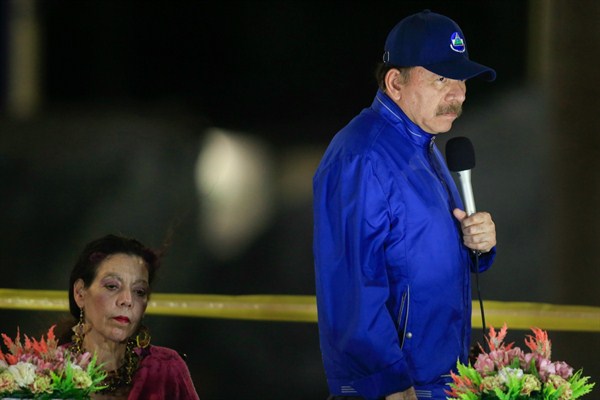Last year, Nicaragua looked like it might slide into civil war. Facing mass protests, President Daniel Ortega and his wife, Vice President Rosario Murillo, responded with repression and violence that only added fury to demonstrators’ demands. One year later, it is clear the two have survived the greatest challenge so far to their move to remain in power indefinitely. But their legitimacy is shattered, the country’s economy is in shambles, and the worst may be yet to come.
If all goes according to Ortega’s plan, the protests that started in April 2018 will formally come to an end within a week. Last Saturday, Nicaragua’s legislature approved a bill that grants complete amnesty to the perpetrators of the government’s crackdown, foreclosing any possibility of investigations, prosecution or punishment for anyone involved in a campaign that killed hundreds of people. At the same time, the government promises to release all prisoners detained as part of the protests by June 18. But the amnesty law dictates that those released must forever refrain from protesting against the government.
The amnesty law prompted a sharp rebuke from the United Nations. Before its full text was made public, the high commissioner for human rights, former Chilean President Michelle Bachelet, reminded Nicaraguan authorities that “amnesties for serious human rights violations are prohibited under international law,” and that “the government has a duty to ensure accountability and justice for victims.” Nonetheless, Ortega’s rubberstamp legislature approved the bill.

